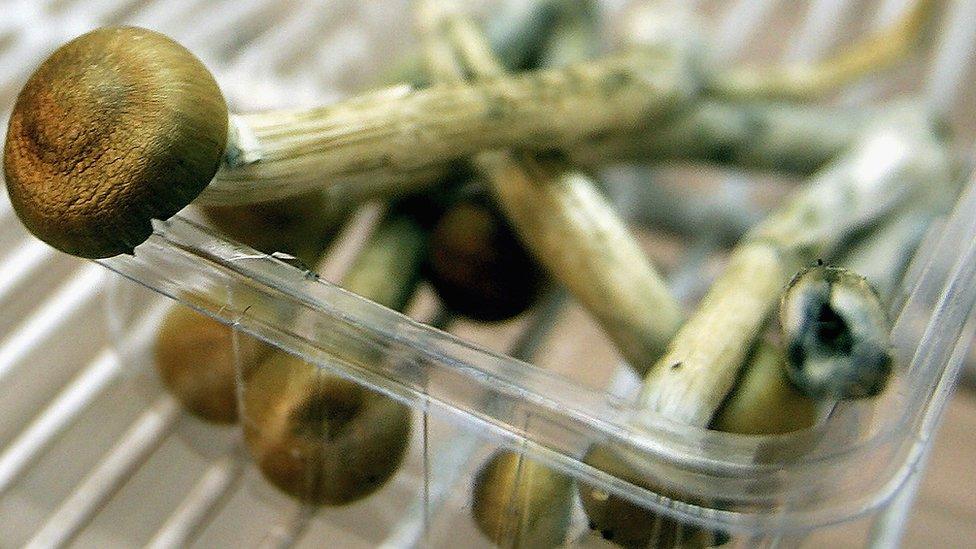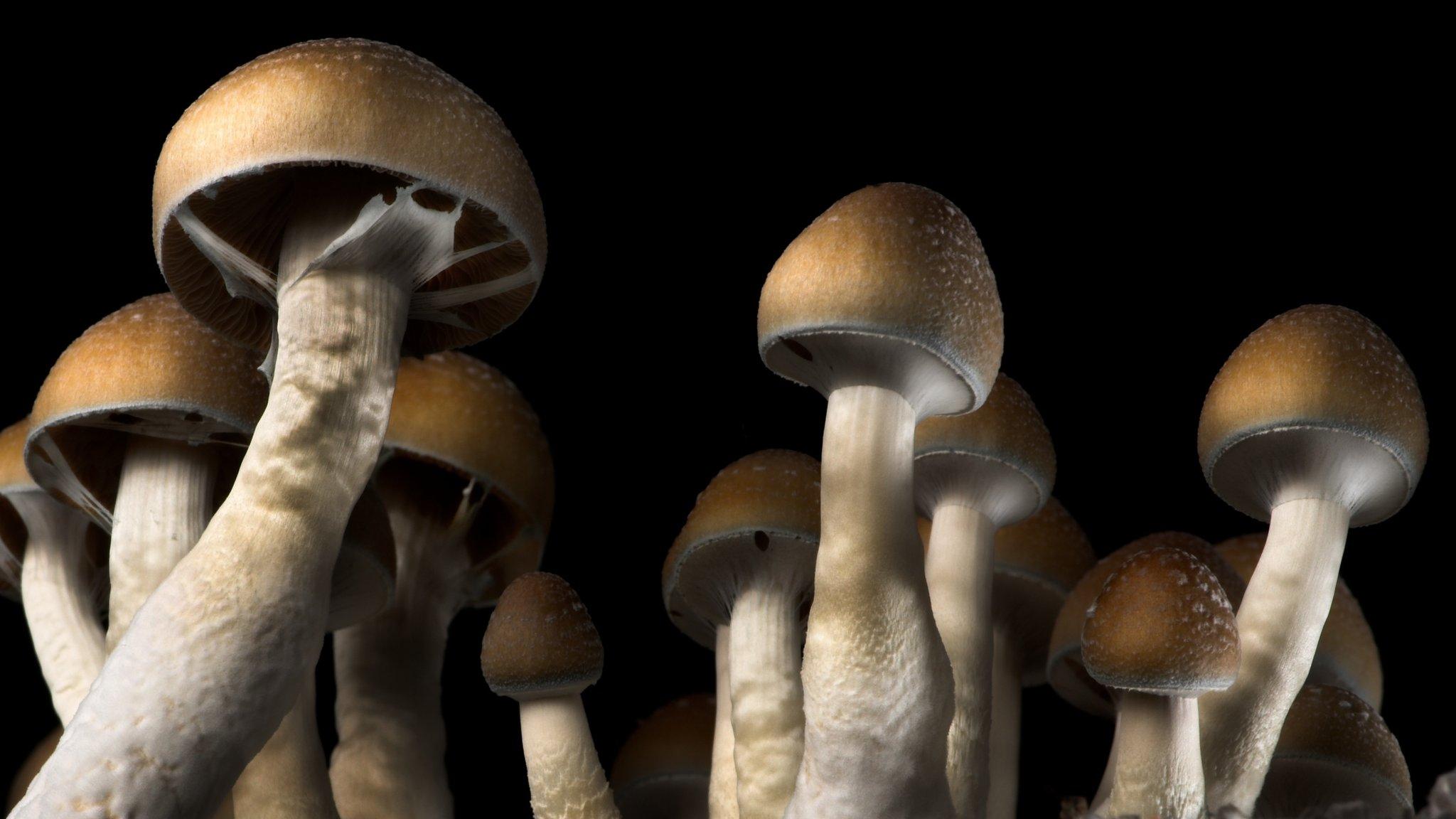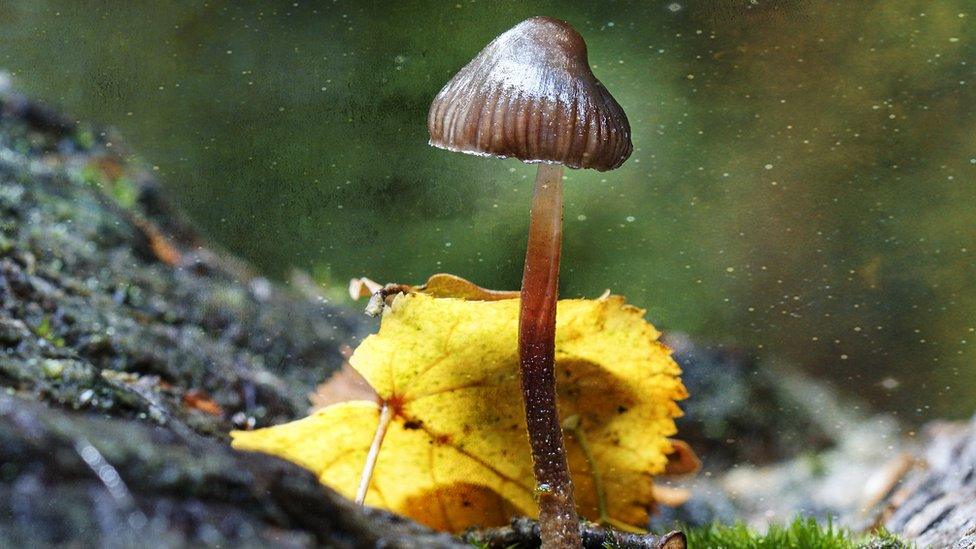Denver votes to decriminalise magic mushrooms by razor-thin margin
- Published

Denver has voted to decriminalise the use of magic mushrooms - the first US city to do so.
The motion was put to a public vote on Tuesday, and passed with a slim majority of 50.6%.
Although the mushrooms will technically still be illegal, restrictions on personal use and possession by adults will be drastically loosened.
Police officers will now be instructed to treat magic mushroom users as their lowest priority.
Denver decriminalised cannabis in 2005 ahead of the rest of the state of Colorado. Tuesday's referendum was the first US public vote on magic mushrooms.
What are magic mushrooms?
They are a form of fungus found across the world which contains a psychedelic chemical called psilocybin.
The UK's National Health Service describes them as a hallucinogenic "making people see, hear and experience the world in a different, 'trippy' way".
Westerners began taking them as a recreational drug in the 1950s but they may have been used long before that in rituals in parts of the world such as Central America.
Under US federal law, psilocybin belongs in the same group of banned drugs as heroin and LSD, and it has been designated a Class A drug in the UK since 2005.
The US federal government argues that psilocybin has high abuse potential and no accepted medical value.
The drug remains illegal in many other countries.
What is the argument for decriminalisation?
Campaigners in Denver say certain mushrooms "may be helpful in the treatment of cluster headaches, PTSD [Post Traumatic Stress Disorder] and OCD [Obsessive-Compulsive Disorder]".
Advocates say that a growing body of evidence, external suggests that the drug has therapeutic benefits for a wide range of illnesses, from anxiety to addiction.
A UK study in 2016, found a hallucinogenic chemical in magic mushrooms shows promise for people with untreatable depression.
In Iowa, a Republican lawmaker recently introduced two bills to remove magic mushrooms from the state's list of controlled substances.
In two other US states - Oregon and California - campaigns have launched to have similar issues on the ballot for the 2020 elections.
How will the new law work in Denver?
Officials will now be barred from "spending resources to impose criminal penalties" for personal use and possession of the drug for residents over the age of 21, effectively preventing the city from prosecuting or arresting adults found with mushrooms.
According to the ballot, adults can even grow mushrooms for personal use.
But psilocybin is not being legalised and cannot be sold by cannabis businesses.
Before the vote Denver's district attorney, Beth McCann, said that although she was against the motion, if it passed she would support the formation of a review panel to study the effects of the drug.
The changes could take effect as soon as next year.
How are people reacting?
Kevin Matthews, who led the campaign to decriminalise the mushrooms, told the Denver Post: "Against all odds, we prevailed. This is what happens when a small team of dedicated and passionate people unite under a single idea to create change."
His group Decriminalise Denver, which was behind the initiative, said: "No-one should go to jail, lose their children, lose their job, and lose their citizen's rights for using a mushroom. One arrest is too many for something with such low and manageable risks for most people, relative to its potential benefits."
Several major figures opposed decriminalisation, including Denver Mayor Michael Hancock and Ms McCann.
Ms McCann told the Washington Post: "At this point, I don't think it's a good idea. We're still figuring out marijuana, and even though things are going well so far, we're still measuring the impacts on the people of Denver."
- Published14 October 2017

- Published1 July 2018
